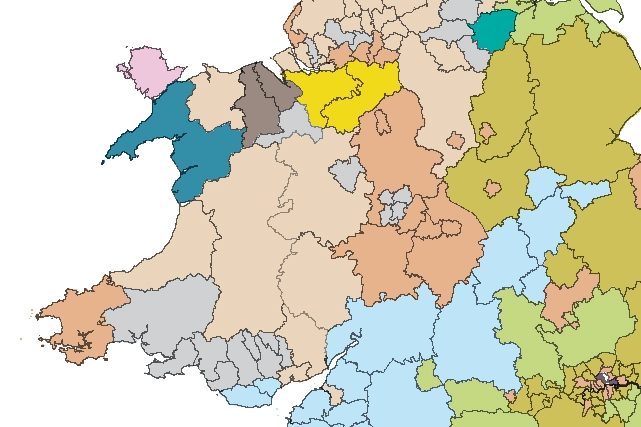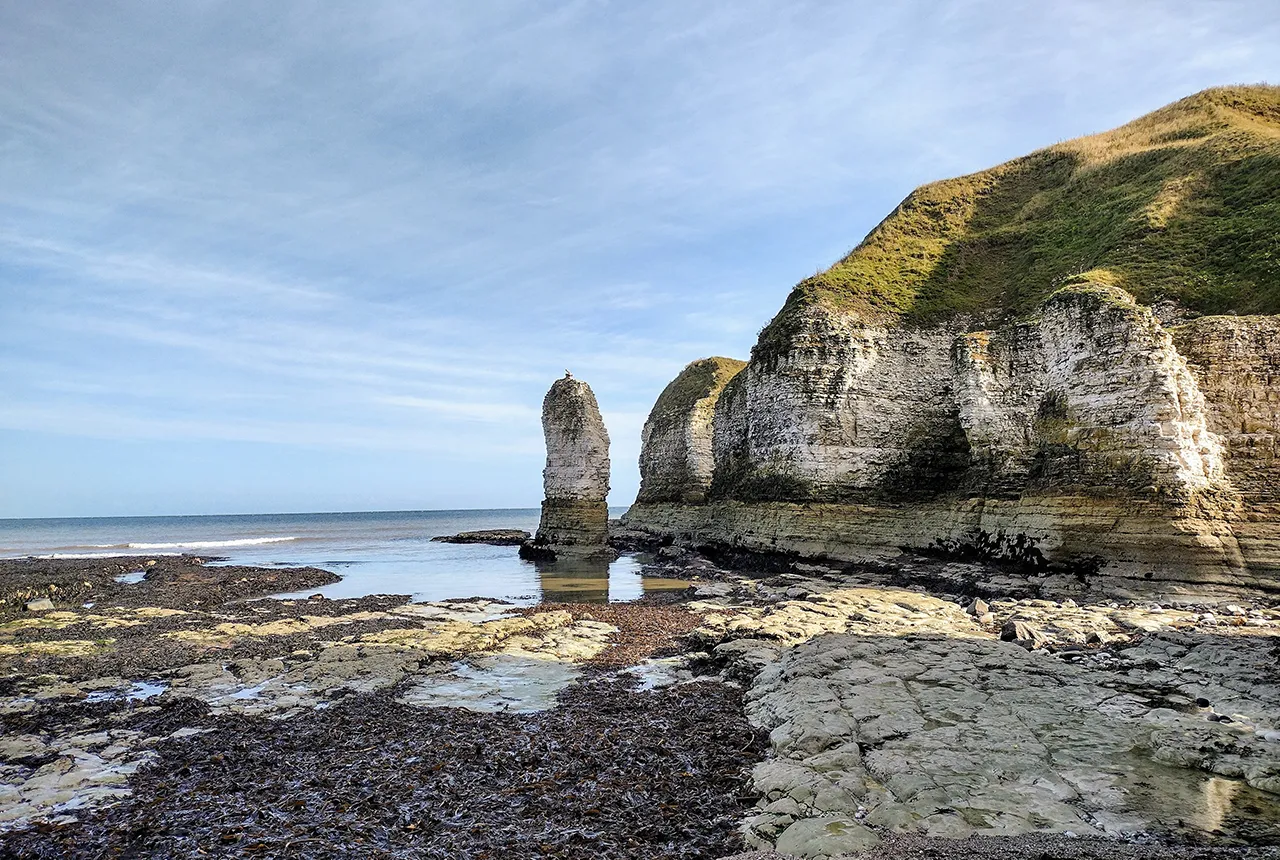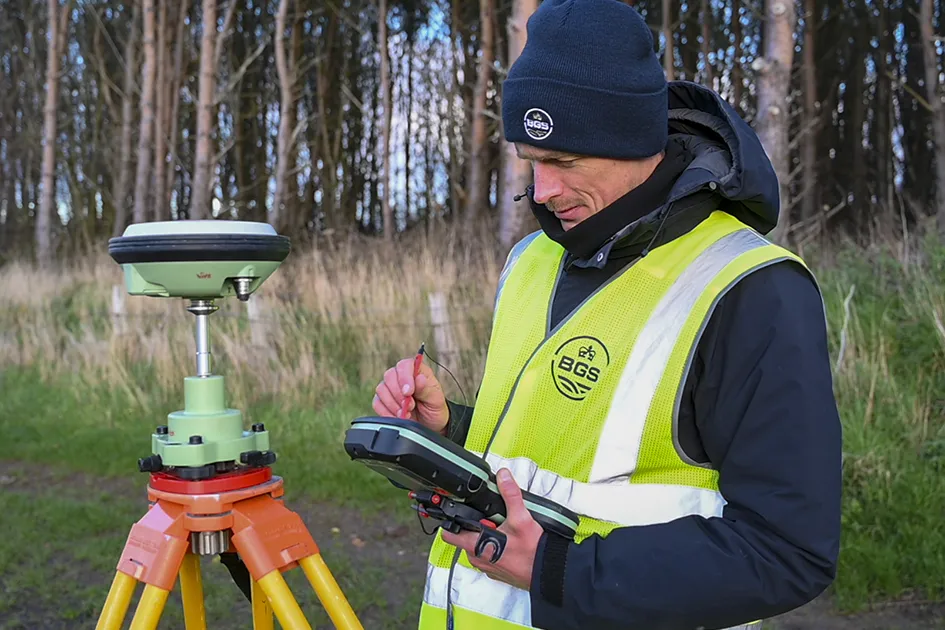BGS Digital data review 2021–22
BGS has undertaken a comprehensive understanding of the data ecosystem in which we operate, providing a detailed assessment of our current operating models and the options for our target operating model over the next 10 years.
18/06/2021 By BGS Press
BGS produces a wide range of data that helps to improve understanding and communication of the impact of geo-environmental properties and hazards in Great Britain, thereby improving society’s resilience and enabling people, businesses and Government to make better-informed decisions. These are provided under a balanced portfolio of open data and commercial licensing of our premium products. This approach ensures a sustainable platform to support the development of datasets and services while making our data as widely accessible as possible.
We need to continue to listen and review how we provide our data in the most effective way to maximise its potential use and ensure that users capitalise on the resources available from BGS. To help us understand how best to do this, we invested in a comprehensive review of our digital data business operations.
Why reviewed our digital data business operations
BGS is a data-rich organisation. We house an enormous amount of globally significant data, collections and information because of our heritage, research activity and contributions from the wider geoscience community. The range and quantity of our data and collections have continued to expand over decades, along with the continued need to ensure there are the correct resources to support their preservation and global access to them.
As technology rapidly develops, we must harness our potential to gather, combine and disseminate data in the most effective ways possible. BGS is instrumental in supporting a wider, multi-agency approach to address industrial and societal needs, most importantly in dealing with our changing environment.
Our vision
Our vision is to create a digital-first geoscience organisation, linking people, data, equipment and technology to make new inferences about the world around us and accelerate scientific discovery. We have a strong track record of producing innovative technological solutions to geoscience problems and early adoption of emerging technology.
We strive to be the partner of choice for geological research and innovation within our user community. We have many success stories, including providing online access to over one million borehole logs and the development of bespoke data products.
Objective
Our objective was to gain a comprehensive understanding of the data ecosystem in which we operate, providing a detailed assessment of our current operating model and the options for our target operating model over the next 10 years.
To achieve this, we completed a comprehensive series of stakeholder engagement projects – including online surveys, focus groups and 1-to-1 interviews – to understand what our external partners want from BGS digital products, to capture best practice and to understand how users wish to access and interact with our services. The responses received have helped us understand the wider impact and importance of BGS data and providing an important assessment of our data users’ needs both now and into the future.
Who is this data review relevant to?
Given the focus of the consultation, we consider it to have particular relevance to:
- our active data-user base, including our open-data users, data licensees, data reseller partners and organisations that interact with the NGDC
- all levels of local government, including county councils, unitary and other local and combined authorities
- devolved governments, government departments, non-departmental government bodies and other public sector agencies
- environmental planners, engineers, architects, consultants and technical specialists
- the infrastructure sector, including transport, energy and other utilities
- startups and small businesses, especially those currently struggling to access and use geoscientific data in their processes
- technology and data-driven or data-rich companies, and their investors
- academia and the research sector, including UKRI agencies and universities
- international data agencies, geological surveys and governance bodies
Consultation feedback
The data gathered by the stakeholder engagements programme provided useful guidance statements to the survey addressed in our enhanced principles.
- Many regard BGS as a trusted and authoritative geological survey for both baseline data and knowledge via value-add derived information products and services that are important to end-users.
- The data and information outputs BGS provide are underpinned by robust science undertaken by its knowledgeable and highly qualified staff. Any future operating model should seek to maintain this quality of service.
- Some stakeholders commented BGS has a slow cycle between survey and data capture, science and publication
- Clarity is needed around how BGS’s digital data business income supports the organisation including the balance between revenue generation and open science
- The role of BGS in supporting the endeavours of the research and commercial sectors should be clarified including our position in competitive markets
- Conversations with peer organisations reinforced the recognition that BGS operates in a very complex and unique ecosystem, where striking an appropriate balance across a multifarious stakeholder community, acknowledging legacy decisions and responding to external economic, societal and environmental factors is itself challenging. A one-size-fits-all model across peers is neither possible nor suitable, therefore individual organisations – including BGS – must adopt an approach practicable for themselves
Outcome and enhanced principles
Now completed, the digital data review generated a set of underlying principles that will guide BGS in its data and product delivery in the coming years. These are:
- Environmental Data and Information Products1 are an important and necessary route for disseminating BGS scientific knowledge and generating societal impact, and that BGS acknowledge the importance of internal science users and external stakeholder (end-user) involvement in influencing decisions in relation to these Data and Products.
- BGS adheres to the NERC Data Policy2 in making Environmental Data available openly.
- A sustainable business model is required, and revenue plays an important role as recognised by the ‘Managing Public Money’ guidance3 and the aforementioned NERC policy on licensing and charging for information, although it is not the sole or primary factor for the production and delivery of BGS Information Products. BGS will focus on primarily geological outputs and markets which could not be serviced without BGS’ involvement. BGS will develop mechanisms to identify and measure impact from both a revenue and non-revenue perspective. The BGS portfolio of product offerings will continue to retain a Mixed Model balancing both open and charged-for premium offerings that maximise benefits to science and society.
- Consistency and transparency in approach is important. A Pricing Review will aim to standardise and simplify (where possible) pricing models to differing markets and use cases.
Interested?
If you wish to hear more, please contact us at digitaldata@bgs.ac.uk
Relative topics
Related news

Map of BGS BritPits showing the distribution of worked mineral commodities across the country
18/02/2026
BGS’s data scientists have generated a summary map of the most commonly extracted mineral commodities by local authority area, demonstrating the diverse nature of British mineral resources.

Funding awarded to map the stocks and flows of technology metals in everyday electronic devices
12/02/2026
A new BGS project has been awarded Circular Electricals funding from Material Focus to investigate the use of technology metals in everyday electrical items.

New UK/Chile partnership prioritises sustainable practices around critical raw materials
09/02/2026
BGS and Chile’s Servicio Nacional de Geología y Minería have signed a bilateral scientific partnership to support research into critical raw materials and sustainable practices.

Extensive freshened water confirmed beneath the ocean floor off the coast of New England for the first time
09/02/2026
BGS is part of the international team that has discovered the first detailed evidence of long-suspected, hidden, freshwater aquifers.

Funding secured to help mitigate ground risk in UK construction sector
05/02/2026
The BGS Common Ground project has been awarded new funding to help unlock the value of ground investigation data.

Can sandstones under the North Sea unlock the UK’s carbon storage potential?
02/02/2026
For the UK to reach its ambitious target of storing 170 million tonnes of carbon dioxide per year by 2050, it will need to look beyond the current well-studied geographical areas.

Quaternary UK offshore data digitised for the first time
21/01/2026
The offshore wind industry will be boosted by the digitisation of a dataset showing the Quaternary geology at the seabed and the UK’s shallow subsurface.

Suite of ten new soil reference materials released
02/01/2026
BGS has a longstanding track record of producing high-quality reference materials and has released ten new soil reference materials.

Perth and Kinross tops the UK’s earthquake activity charts for 2025
29/12/2025
Seismologists at BGS have published data on the number of seismic events over the past 12 months with over 300 earthquakes recorded.

BGS awarded funding to support Malaysia’s climate resilience plan
17/12/2025
The project, funded by the Foreign, Commonwealth & Development Office, will focus on minimising economic and social impacts from rainfall-induced landslides.

New geological maps of the Yorkshire Wolds to better inform groundwater management and policy decisions
17/12/2025
The new mapping provides crucial data on localised geological issues that may assist in protecting water supplies.

‘Three norths’ set to leave England and not return for hundreds of years
12/12/2025
The historic alignment of true, magnetic, and grid north is set to leave England, three years after they combined in the country for the first time since records began.

